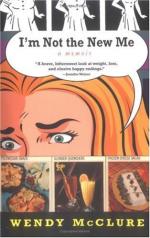My first look was directed to the Matterhorn, which, thirty-five miles away, pierced the morning sky with its black spike. Glittering near it were the snow turrets of Monte Rosa, the Dent Blanche, and all the marvellous circle of peaks that stand around Zermatt. There was not a cloud to break the view. On one side lay Italy; on the other France. It would be impossible to imagine the wild scene immediately below us. The tremendous slopes of snow falling away on all sides, now in steep inclines and now in broken precipices, ever down and down, were not after all so imposing as the jagged pinnacles of bare rock that sprang out of them.
There was something peculiarly savage, almost menacing, in the aspect of these lower mountains, pressing in serried ranks around their white-capped chief. They seemed to shut us far away from the human world below, and one felt that he had placed himself entirely in the hands of nature. This was her realm, where she acknowledged no laws but her own, and was incapable of sympathy, pity, or remorse.
FAIRY GOLD.
BY MARY STEWART CUTTING,
Author of “The Coupons of Fortune,” “Henry,” and other stories.
When Mr. William Belden walked out of his house one wet October evening and closed the hall door carefully behind him, he had no idea that he was closing the door on all the habits of his maturer life and entering the borders of a land as far removed from his hopes or his imagination as the country of the Gadarenes.
He had not wanted to go out that evening at all, not knowing what the fates had in store for him, and being only too conscious of the comfort of the sitting-room lounge, upon which, after the manner of the suburban resident who travelleth daily by railways, he had cast himself immediately after the evening meal was over. The lounge was in proximity—yet not too close proximity—to the lamp on the table; so that one might have the pretext of reading to cover closed eyelids and a general oblivion of passing events. On a night when a pouring rain splashed outside on the pavements and the tin roofs of the piazzas, the conditions of rest in the cosey little room were peculiarly attractive to a man who had come home draggled and wet, and with the toil and wear of a long business day upon him. It was therefore with a sinking of the heart that he heard his wife’s gentle tones requesting him to wend his way to the grocery to purchase a pound of butter.
“I hate to ask you to go, William dear, but there really is not a scrap in the house for breakfast, and the butter-man does not come until to-morrow afternoon,” she said deprecatingly. “It really will only take you a few minutes.”




